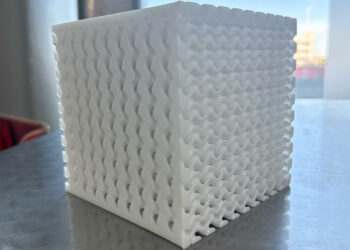The coronavirus forced many organizations to sideline IT refresh projects in 2020, but enterprise representatives say they expect to get back into the asset disposition game in 2021.
Wisconsin-based ITAD company Cascade Asset Management recently released its annual ITAD benchmarking report, which includes a mix of data from an online survey of Cascade’s clients in December and numbers from Cascade’s activities. The document shows the impact of COVID-19 in 2020.
“Clearly, it is the biggest challenge that most of our organizations have ever faced, and it has been very disruptive in the lives of people and how people work around it,” Neil Peters-Michaud, CEO of Cascade Asset Management, said during a webinar for the International Association of IT Asset Managers (IAITAM).
Still, survey data suggests 2021 may bring an increase in IT disposal activity, he said.
Fewer (but more valuable) devices
According to the report, many survey respondents said supply chain limitations made it hard for them to acquire equipment for their employees working at home. Specifically, 47% said they found it tough to get their hands on peripherals (such as webcams, headsets and routers) and 44% struggled to find IT devices such as laptops, monitors, printers and phones.
Other companies adapted to supply shortages by relying on existing equipment that they had otherwise planned to retire (33% survey response), or they asked their employees to use their personal devices to work from home (13%).
Another 41% indicated the pandemic had no impact on their IT equipment procurement and deployment in 2020. (Note: The numbers above don’t add up to 100% because poll respondents could mark multiple answers.)
From the ITAD vendor perspective, the virus meant less used material coming in the door. In the survey, 40% of Cascade’s clients indicated they slightly or greatly reduced their IT equipment disposal activities in 2020. The response was consistent with Cascade’s own processing numbers – Cascade received 24% fewer devices in 2020 than in 2019.
But the report also reflected the business boost from the hot used electronics market. Amid the pandemic, second hand electronics have sold for higher prices, Peters-Michaud said, “so our resale revenues actually grew last year.”
According to Cascade’s report, average laptop sales prices increased by 44% from the first quarter of 2019 and the fourth quarter of 2020. They hit their peak, averaging over $120, during the third quarter of 2020.
The average sales price of desktop computers increased 65% between early 2019 and late 2020, although some of that boost was because higher-quality computers with faster processors were being retired late in 2020.
Even average sales prices for lower-cost LCD monitors increased 44% during that time. Some of the LCD monitor price increase was because Cascade took in larger monitors in late-2020, Peters-Michaud said, but he also noted strong demand for dual-screen setups in home offices.
A return to normal in 2021?
The survey suggests organizations plan to get back on track with their IT asset refresh projects in 2021.
Respondents said that 64% of the laptops they plan to retire in 2021 will be four years old or less. That’s the same number derived from survey responses in December 2019, before the pandemic struck the U.S. And 51% of the desktop PCs they retire will be four years old or less, up from 46% last year.
Peters-Michaud said the survey results suggest to him that the pandemic simply delayed planned IT replacement projects from 2020 to 2021.
“We believe there will be an increase in disposal activity later this year,” he said, especially if the pandemic subsides and a better picture of the future emerges.
But collections will often look different in the future. Survey respondents said about 45% of their staff is working from home during the pandemic. That’s up from 17% before the pandemic. After the pandemic, they think 24% may be working from home. Extrapolating those numbers to the entire U.S. working population, that means about 11 million more people may work permanently from home after the pandemic, Peters-Michaud noted. That will create challenges for remote IT management and disposition.






























